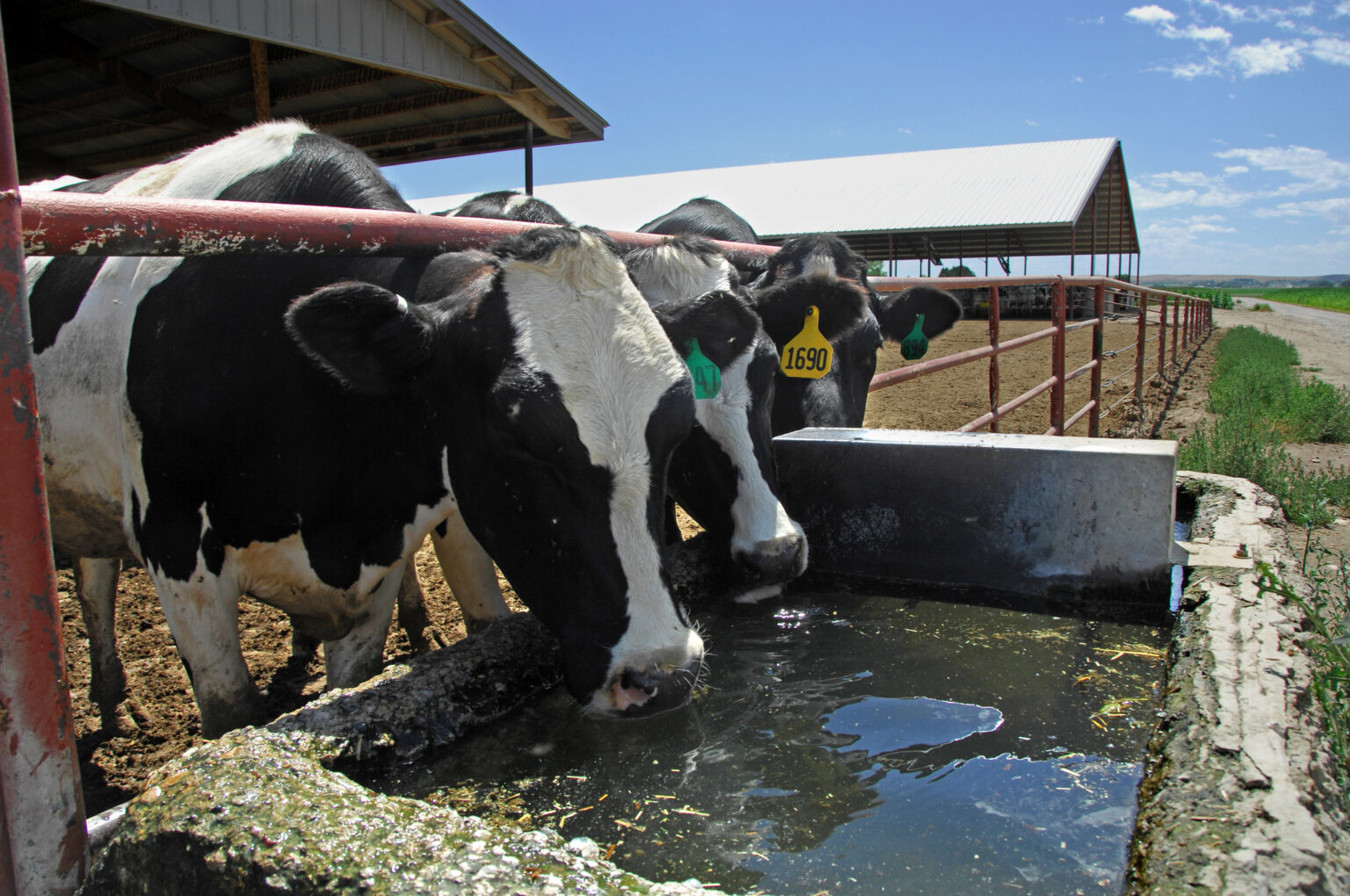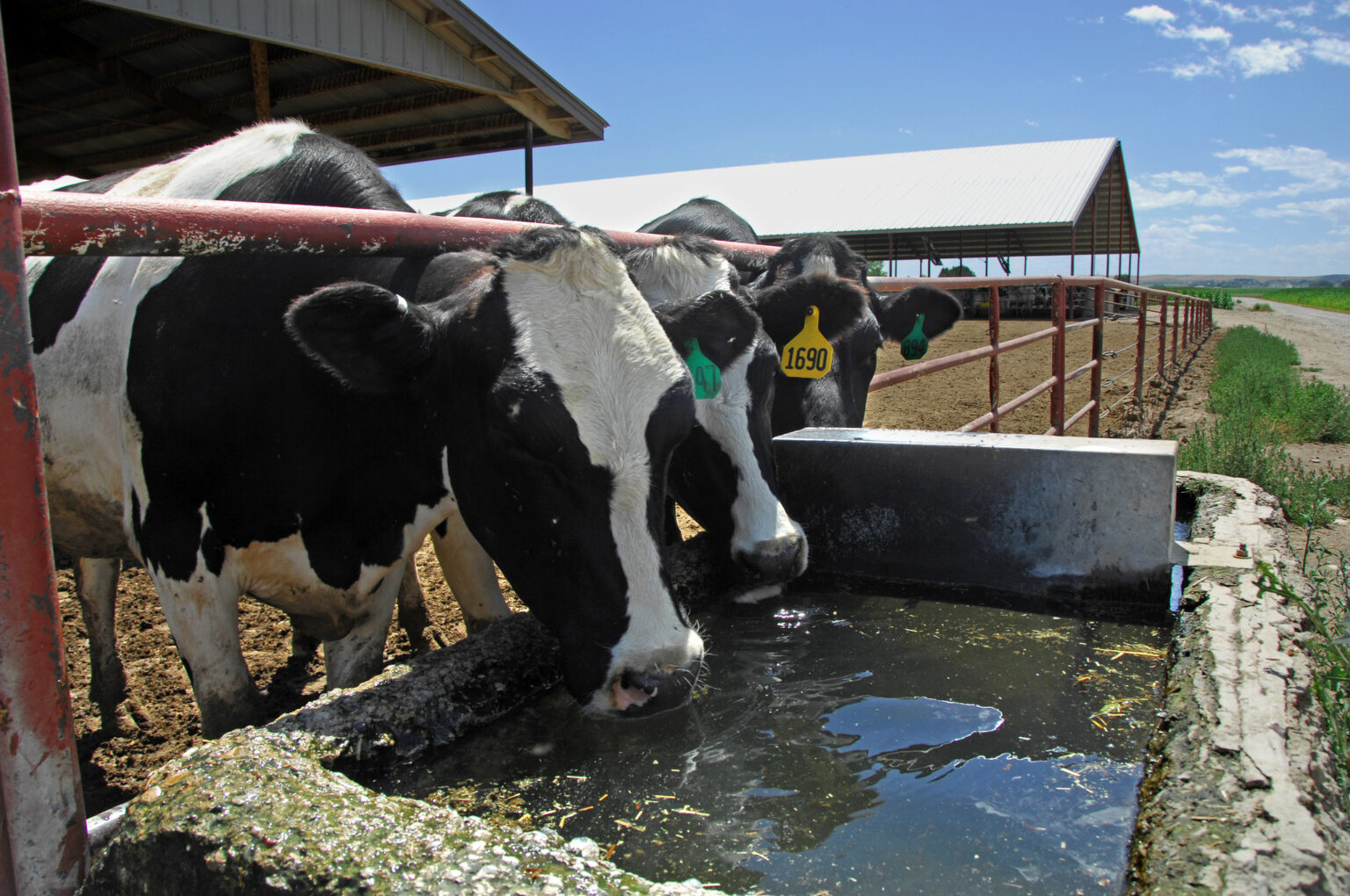Washington In an effort to learn more about the transmission of highly dangerous avian influenza, the U.S. Department of Agriculture said Friday that it will mandate dairy farms to give unpasteurized milk samples upon request.
Before the virus started to appear in the nation’s dairy herds this March, public health officials had been monitoring the spread of bird flu, also known as H5N1, in domestic chicken flocks for years.
Although there is no proof that bird flu can spread from person to person and the risk to the general public is still low, this year there have been about 60 cases of the virus, primarily among farmworkers.
USDA’s new milk testing regulations will be implemented nationwide, although they will start the week of December 16 in California, Colorado, Michigan, Mississippi, Oregon, and Pennsylvania.
According to Agriculture Secretary Tom Vilsack’s written statement, among other things, this will increase farmers’ and farmworkers’ self-confidence in the safety of their animals and their capacity for self-defense, setting the stage for swiftly containing and halting the virus’s spread across the country.
Unpasteurized milk
In order to confirm that pasteurized milk is safe to consume, the U.S. Food and Drug Administration has conducted several tests on shop shelves around the nation. It has also been determined that other dairy products, such as cheese and ice cream, are safe.
However, because unpasteurized milk does not undergo the heating procedure that eliminates germs and viruses, the FDA still advises against consuming it.
The new milk testing approach is an essential component of our continuous efforts to safeguard the health and safety of people and communities across the country, according to a written statement from Health and Human Services Secretary Xavier Becerra.
We continue to work closely with USDA and all stakeholders on ongoing testing for H5N1 in retail milk and dairy samples from across the nation to ensure the safety of the commercial pasteurized milk supply because protecting public health and the food supply is our top priority at HHS, Becerra said. For as long and as far as it takes, we will keep working with USDA.
In an effort to facilitate the movement of cattle across state borders without requiring farms to test every cow, the USDA launched a voluntary bulk tank testing program for milk this summer. In August, the agency also started a year-long study to check for bird flu in dairy calves that were switched to meat production in an effort to validate earlier research that concluded the cattle were safe to consume.
According to USDA data, the avian flu outbreak has so far this year impacted 720 dairy cows across 15 states, with California emerging as the epicenter in the past month.
Only four of the 273 herds that have been detected have been discovered in Utah in the past 30 days; almost all of them are in the Golden State.
According to data from the Centers for Disease Control and Prevention, 32 of the 58 cases of bird flu that have been confirmed this year have occurred in California, making it the state with the highest number of human cases.
Ten more human cases have been reported from Colorado, and 11 H5N1 infections have been confirmed in Washington state. Missouri, Oregon, and Texas have all had one positive human case this year, compared to Michigan’s two.
USDA order
Anyone in charge of a dairy farm, including bulk milk transporters, bulk milk transfer stations, and dairy processing facilities, will have to provide unpasteurized or raw milk samples upon request, according to a USDA government rule that was announced on Friday.
In order for public health officials to conduct contact tracing and other forms of disease surveillance, farm owners whose dairy herds test positive for H5N1 will have to disclose epidemiological data.
State veterinarians and private labs are also required to notify USDA of any positive samples obtained under this National Milk Testing Strategy.
Note: Every piece of content is rigorously reviewed by our team of experienced writers and editors to ensure its accuracy. Our writers use credible sources and adhere to strict fact-checking protocols to verify all claims and data before publication. If an error is identified, we promptly correct it and strive for transparency in all updates, feel free to reach out to us via email. We appreciate your trust and support!



